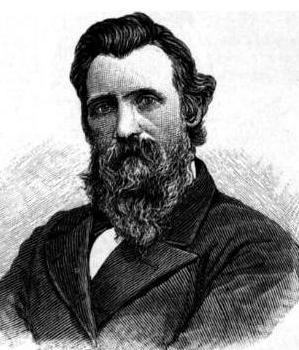Nicholas Ford facts for kids
Nicholas Ford (born June 21, 1833 – died June 18, 1897) was an important politician from Missouri. He served as a U.S. Representative, which means he was a member of the U.S. Congress, helping to make laws for the country.
Contents
Nicholas Ford's Early Life
Nicholas Ford was born in Wicklow, Ireland. He went to school in his village and later studied at Maynooth College in Dublin, Ireland. When he was about 15 years old, in 1848, he moved to the United States with his parents. They settled in Chicago, Illinois.
As a young man, Ford moved around quite a bit. In 1859, he moved to St. Joseph, Missouri. Later, he traveled to Colorado and Montana, where he worked in mining. After some time, he returned to Missouri and settled in Rochester, a town in Andrew County. There, he started a business, working in trade and sales.
Starting in Politics
Nicholas Ford began his political career in Missouri. In 1875, he was elected to the State House of Representatives. This was his first step into making laws and representing people in government.
Representing Missouri in Congress
Ford was elected to the United States House of Representatives as a member of the Greenback Party. He served two terms in Congress, from March 4, 1879, to March 3, 1883. During this time, he helped make decisions for the entire country.
He tried to be re-elected in 1882 but was not successful. He also ran for Governor of Missouri in 1884 as a Republican, but he did not win that election either. In 1890, he tried again to get back into Congress, but he was unsuccessful.
Later Years and Legacy
After his time in Congress, Nicholas Ford moved to Virginia City, Nevada. He continued to be involved in public life there, serving as a member of the city's first council. Later, he retired from his business activities and moved to Miltonvale, Kansas. He passed away on June 23, 1897, and was buried in the Catholic Cemetery in Aurora, Kansas.
A community in Missouri, Ford City, Missouri, was named after Nicholas Ford, honoring his contributions and presence in the state.


